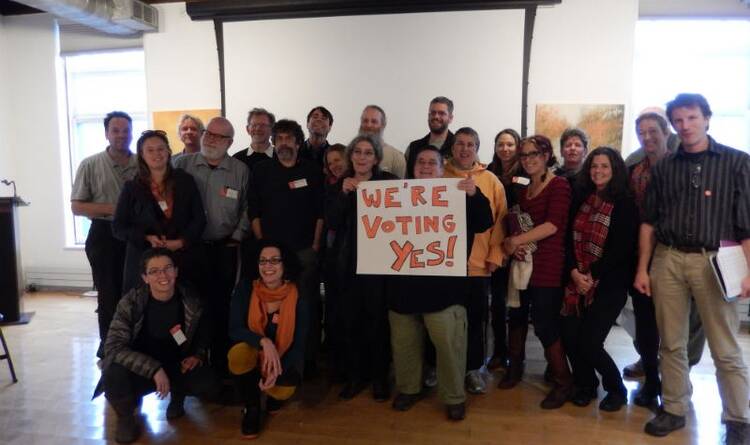In a much-anticipated decision last week the National Labor Relations Board ruled on adjuncts’ right to organize at religious colleges and universities. Over the past few years adjunct instructors at several Catholic colleges and universities have filed for union representation elections. Georgetown, St. Michael’s, St. Mary’s and the University of St. Thomas have seen the elections proceed without incident. Others – such as Duquesne, Manhattan, St. Xavier, and Seattle – objected to the whole process, arguing that as religious institutions the First Amendment exempted them from the National Labor Relations Act. Regional NLRB offices retorted that the schools, which served students of all faiths and didn’t require religious instruction, were not sufficiently religious for the purpose of the law – creating an unfortunate echo of the Affordable Care Act contretemps over contraception at Catholic hospitals.
Religious schools (Catholic and otherwise) appealed the decision to the head NLRB office in Washington DC. In Pacific Lutheran the Board gave its answer, an attempt to reconcile the religious freedom of denominational universities without unjustly abridging the rights of their employees. The Board deliberately renounced authority to determine if a college or university had a “substantial religious character” and generally expressed considerable deference to any institution that “holds itself out” as a religious institution. But workers, including faculty, do not automatically forfeit all their rights when they accept employment at a religious institution: only if the University “holds out” publicly that the faculty perform a religious function in furtherance of the religious mission will they be ineligible for these protections. The Board stated:
We rely on the institution’s own statements about whether its teachers are obligated to perform a religious function, without questioning the institution’s good faith or otherwise second-guessing those statements. If the evidence shows that faculty members are required to serve a religious function, such as integrating the institution’s religious teachings into coursework, serving as religious advisors to students, propagating religious tenets, or engaging in religious indoctrination or religious training, we will decline jurisdiction. [Pacific Lutheran University and Service Employees International Union, Local 925, Petitioner. Case 19–RC–102521]
The long march of this litigation may not be over; either party may appeal the decision to the courts. However, the Board has made a considerable effort here to vindicate the just demands of both the universities and their adjunct faculty. Let us pray that the two sides use the opportunity to build employment relations premised on collaboration and mutual respect.








